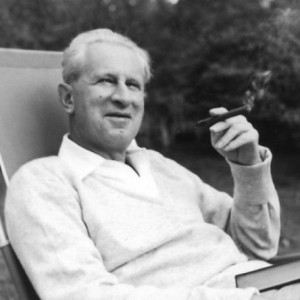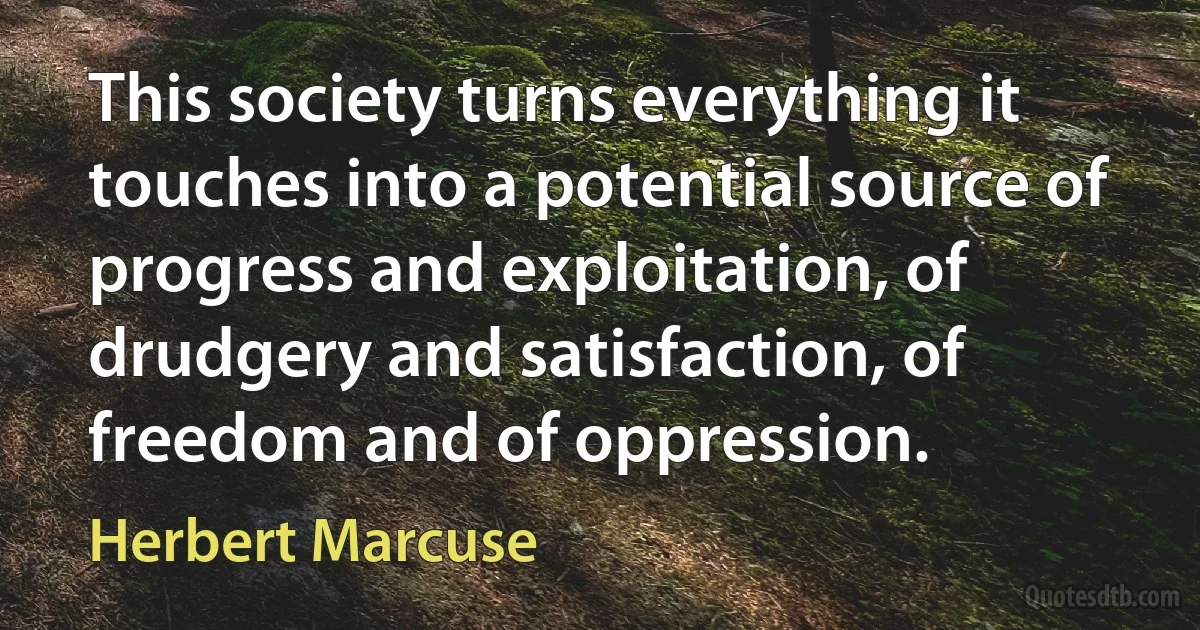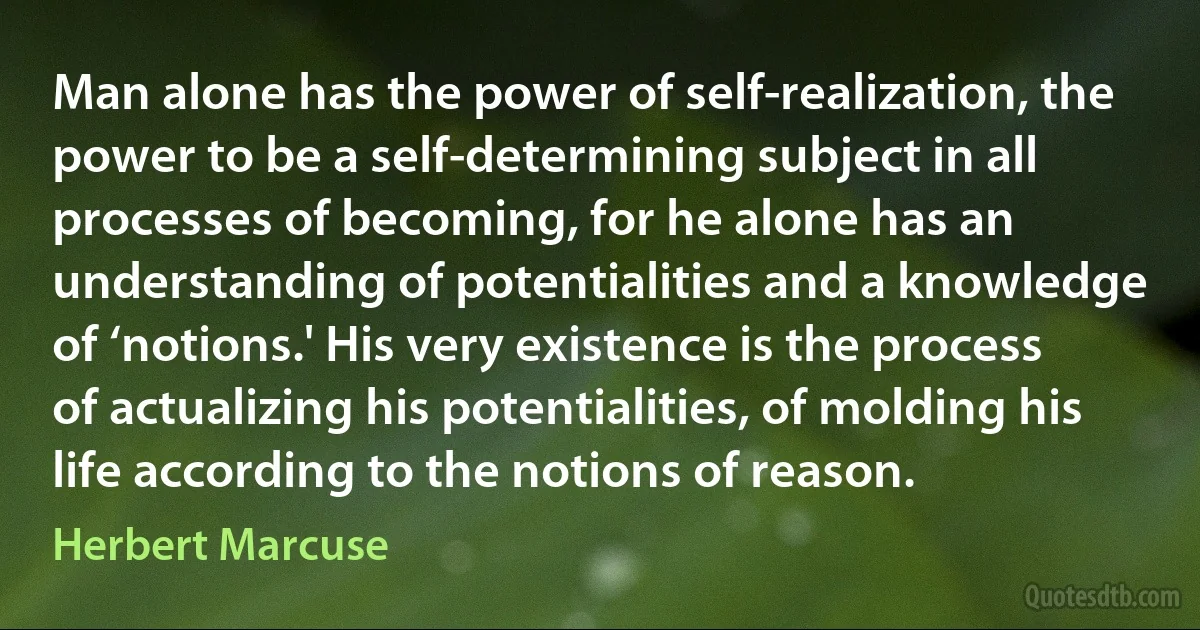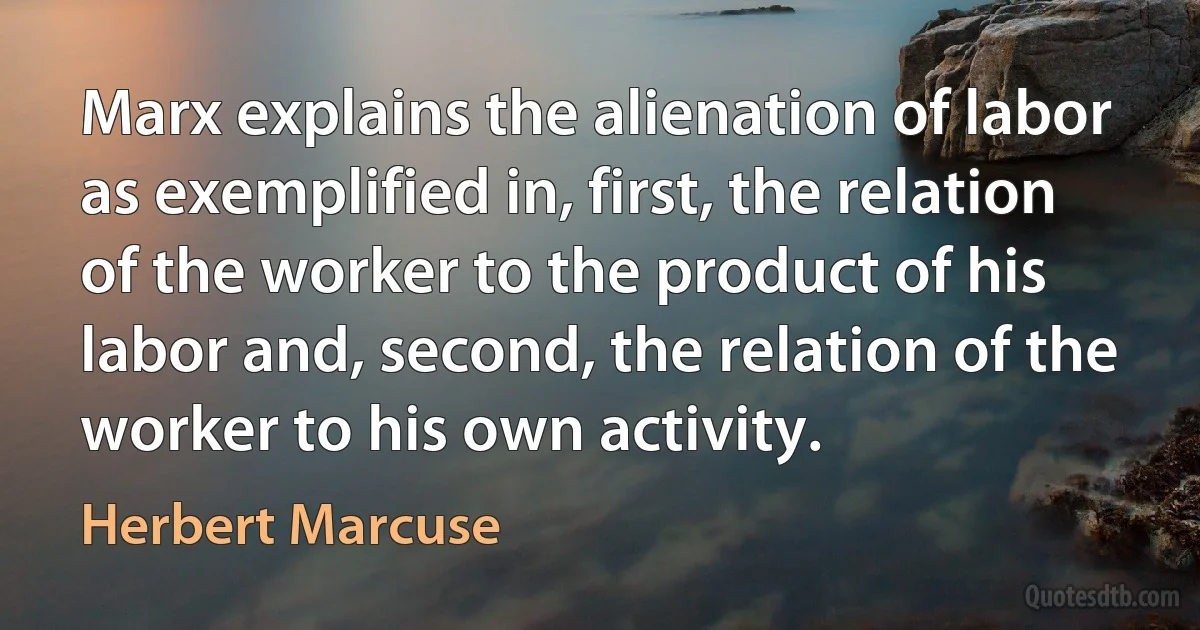Herbert Marcuse quotes - page 6
The organism is thus being preconditioned for the spontaneous acceptance of what is offered. Inasmuch as the greater liberty involves a contraction rather than extension and development of instinctual needs, it works for rather than against the status quo of general repression - one might speak of "institutionalized desublimation". The latter appears to be a vital factor in the making of the authoritarian personality of our time.

Herbert Marcuse
Inasmuch as art preserves, with the promise of happiness, the memory of the goal that failed, it can enter, as a 'regulative idea,' the desperate struggle for changing the world. Against all fetishism of the productive forces, against the continued enslavement of individuals by the objective conditions (which remain those of domination), art represents the ultimate goal of all revolutions: the freedom and happiness of the individual.

Herbert Marcuse
The truth of literature and art has always been granted (if it was granted at all) as one of a "higher" order, which should not and indeed did not disturb the order of business. What has changed in the contemporary period is the difference between the two orders and their truths. The absorbent power of society depletes the artistic dimension by assimilating its antagonistic contents. In the realm of culture, the new totalitarianism manifests itself precisely in a harmonizing pluralism, where the most contradictory works and truths peacefully coexist in indifference.

Herbert Marcuse
The notion contradicts reality when the latter has become self-contradictory. Hegel says that a prevailing social form can be successfully attacked by thought only if this form has come into open contradiction with its own ‘truth,' in other words, if it can no longer fulfill the demands of its own contents.

Herbert Marcuse
The concept of labor is not peripheral in Hegel's system, but is the central notion through which he conceives the development of society. Driven by the insight that opened this dimension to him, Hegel describes the mode of integration prevailing in a commodity-producing society in terms that clearly fore-shadow Marx's critical approach.

Herbert Marcuse
The historical world, in so far as it is built, organized, and shaped by the conscious activity of thinking subjects, is a realm of mind. But the mind is fully realized and exists in its true form only when it indulges in its proper activity, namely, in art, religion, and philosophy.

Herbert Marcuse
The real field of knowledge is not the given fact about things as they are, but the critical evaluation of them as a prelude to passing beyond their given form. Knowledge deals with appearances in order to get beyond them. .... The concept of reality has thus turned into the concept of possibility. The real is not yet ‘actual,' but is at first only the possibility of an actual.

Herbert Marcuse
The will is a unity of two different aspects or moments: first, the individual's ability to abstract from every specific condition and, by negating it, to return to the absolute liberty of the pure ego; secondly, the individual's act of freely adopting a concrete condition, freely affirming his existence as a particular, limited ego.

Herbert Marcuse
The transition from Hegel to Marx is, in all respects, a transition to an essentially different order of truth, no to be interpreted in terms of philosophy. We shall see that all the philosophical concepts of Marxian theory are social and economic categories, whereas Hegel's social and economic categories are all philosophical concepts.

Herbert Marcuse
Hegel's philosophy revolved about the universality of reason; it was a rational system with its every part (the subjective as well as the objective spheres) integrated into a comprehensive whole. Marx shows that capitalist society first put such a universality into practice. P. 286-287.

Herbert Marcuse
Sociology does not ‘negate' philosophy, in the sense of taking over the hidden content of philosophy and carrying it into social theory and practice, but sets itself up as a realm apart from philosophy, with a province and truth of its own. Comte is rightly held to be the inaugurator of this separation between philosophy and sociology.

Herbert Marcuse
Herbert Marcuse
 Occupation: German Philosopher
Occupation: German Philosopher
Born: July 19, 1898
Died: July 29, 1979
Quotes count: 159
Wikipedia: Herbert Marcuse











